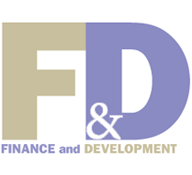In Brief
Finance & Development, September 2009, Volume 46, Number 3
Increasing global liquidity
The IMF has injected $250 billion into the global economy through a new allocation of Special Drawing Rights (SDRs), an IMF reserve asset. The move, approved by the IMF’s Board of Governors on August 7, is designed to increase global liquidity by supplementing the Fund’s 186 member countries’ foreign exchange reserves.
The equivalent of nearly $100 billion of the allocation went to emerging markets and developing countries, of which low-income countries received more than $18 billion.
Low-income countries are also being helped by new IMF measures that have sharply increased the loan monies available to them. The resources—some of which will come from the planned sale of IMF gold—are expected to boost the Fund’s concessional lending to up to $17 billion through 2014, including to $8 billion over the next two years.
In addition, the IMF has announced zero interest payments through end-2011 on its concessional loans to help low-income countries cope with the global economic crisis.
Hunger at historic high
World hunger is projected to reach a historic high in 2009, with more than 1 billion people going hungry every day, according to new estimates published by the UN Food and Agriculture Organization (FAO).
The increased hunger is a consequence of the world economic crisis and higher food prices, which has resulted in lower incomes and higher unemployment, the United Nations agency said. This year, the number of hungry people will grow by about 11 percent, the FAO projects.
In Asia and the Pacific, an estimated 642 million people are suffering from chronic hunger; in sub-Saharan Africa, 265 million; in Latin America and the Caribbean, 53 million; in the Near East and North Africa, 42 million; and in developed countries, 15 million.
Gadgets and gigawatts
By 2010, there will be over 3.5 billion mobile phone subscribers, 1 billion personal computers, and 2 billion televisions in use around the world, says a study by the International Energy Agency. Gadgets and Gigawatts finds that the benefits these devices bring are going not only to people in wealthier nations, but also to the developing world. In Africa, for example, one in nine people now has a mobile phone.
But without new policies, the energy consumed by information and communications technologies as well as consumer electronics will double by 2022 and increase threefold by 2030, jeopardizing efforts to increase energy security and reduce greenhouse gas emissions, the study notes. And the rising demand for technology worldwide will likely overshadow any savings from improvements in the efficiency of electronic devices.
IMF blog
The IMF has launched a new policy blog—iMFdirect—covering the global economy and policy related to the crisis. Written by senior Fund economists with a broad range of expertise, the blog contains musings on the institution’s work in economics and finance. Recent posts highlight the debate over policy responses to the biggest global recession since the Great Depression. Visit the blog at http://blog-imfdirect.imf.org/
The IMF has also begun producing The State of Public Finances: A Cross-Country Fiscal Monitor, a new online publication that analyzes public finances around the world. The Monitor will appear each April and October, with shorter quarterly updates as warranted.
Events in 2009
October 6–7, Istanbul, Turkey
Annual Meetings of the IMF and the World Bank
November 5–6, Washington, D.C.
IMF Tenth Annual Jacques Polak Research Conference
November 8–10, New Delhi, India
World Economic Forum’s India Economic Summit
November 14–15, Singapore
Asia-Pacific Economic Cooperation Economic Leaders’ Meeting
November 16–18, Rome, Italy
World Summit of Heads of State and Government on Food Security
December 7–18, Copenhagen, Denmark
United Nations Climate Change Conference


